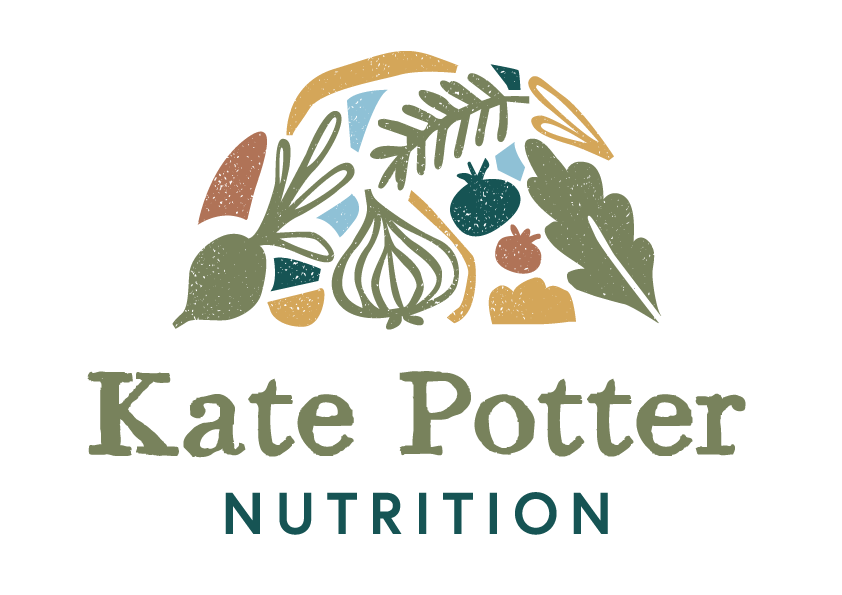
Case studies
Louise
Louise came to me for support with her Crohn’s disease. She was feeling excessively tired and was experiencing bloating, belching and irregular bowel movements. She had also noticed tingling in her hands at night.
The OAT test picked up several B vitamin deficiencies, including B12. It also showed a high level of mould in her system. The gut test showed significant dysbiosis and short chain fatty acid deficiencies. Louise’s questionnaire also showed that she felt chronically stressed and often ate on the move and had irregular eating patterns.
We looked at Louise’s digestion and found that her stomach acid levels were low, probably due to stress and irregular eating patterns. I showed her how this could impact her ability to digest her food and how this in turn could lead to increased food intolerances and inflammation.
We also looked at how low stomach acid could negatively impact her ability to fight off pathogens, increase the risk of dysbiosis and increase the risk of high levels of mould in her digestive tract. I explained how these factors could deplete her B vitamin levels, leading to fatigue and tingling, as well as a reduced ability to detoxify. Impaired detoxification is a huge driver of inflammation and autoimmunity.
So we started by removing certain foods that she had observed she was intolerant to and were exacerbating inflammation, particularly dairy and gluten. We added in methylated B vitamins to support her deficiencies, including a high level of B12 which is often deficient in Crohn’s due to damage to the ileum. We gradually increased her intake of plant fibres and reduced her sugar intake to support the growth of beneficial strains of bacteria in her gut microbiome and supported this with a specific probiotic, guided by her test results.
We then looked at how important it is to produce optimum levels of stomach acid and how to do this by getting the body into a regular routine and finding strategies, such as breathing exercises, to move to parasympathetic mode (rest and digest) before eating, so that the body can produce all the digestive juices required for proper digestion, reducing the chances of food intolerances developing.
Having put these supportive processes in place, we then used a particular supplement that helped Louise to clear the mould from her system.
Over time Louise found her energy levels significantly improved. This was likely due to her improved levels of B vitamins, key to energy, but also to the reduction of the burdens on her detoxification system, which also deplete B vitamins. We reran a test on her gut microbiome which showed a much improved picture. A healthy gut microbiome is key to the production of certain B vitamins.
We retested Louise’s B12 level after three months and found it to be within the normal range. Her tingling had subsided by this point so it was likely a consequence of her low B12, which is common.
Finally, after some trial and error, we came up with an eating routine that Louise found easy to stick to and which helped her to feel more relaxed when eating. She found that her bloating and belching had subsided and that her bowel movements were more regular. She decided to reintroduce some of the foods that she had removed, as she no longer appeared to be reacting to them, but continued to exclude gluten as she did not feel she wanted to start eating it again for now.
Louise went away feeling more in control of her digestion and her energy levels. She had also found that she was now sleeping better. She now felt more able to manage her condition and was delighted with the outcome of our work together.
Male psoriasis client
This client came to me with psoriasis, which had begun in his late teens, but had started to flare more regularly in the past 12 months. He was also reporting symptoms of bloating, irregular bowel movements, fatigue and stress.
His GI 360 test results showed very low levels of secretory IgA (sIgA). sIgA is a protective antibody secreted by the immune system to protect the gut lining from pathogens and allergens. Low levels are strongly associated with autoimmunity, as well as with food intolerances. He also had low levels of key bacteria and an overgrowth of a particular parasite associated with low sIgA, digestive dysfunction and abdominal pain.
His OAT urine test results showed that he had low levels of the neurotransmitter serotonin, as well as low levels of the amino acid tryptophan, vitamin D and vitamins B6 and B12. Serotonin is hormone that stabilises mood, as well as regulating digestion and sleep. 80% of serotonin is produced in the gut and production is compromised when bacteria in the gut are imbalanced. Tryptophan and B6 are also required to produce serotonin. Vitamin D promotes immune tolerance.
We temporarily eliminated three key foods from his diet that we thought he was likely to be reacting to. We focused on increasing his production of sIgA through various interventions, including vitamin A, zinc, beta glucans and bile acid support, as well as helping him to reduce stress (cortisol) levels, which deplete sIgA.
We made dietary changes to influence the balance of bacteria in his gut, as well as using a herbal supplement to reduce the overgrowth of the parasite.
We used diet and supplements to improve B vitamin levels, vitamin D, tryptophan and magnesium. In particular we focused on methylation support to help his detoxification system cope with the excessive inflammation. It is really important to keep detoxification pathways working smoothly, as impaired pathways can promote further inflammation and autoimmune activity.
Over the next few months, the client found that his digestive function was much improved, with the bloating resolving and his bowel movements becoming regular. His mood and energy levels really improved, which was likely a result of the work we did on his serotonin and detoxification. His psoriasis improved slowly but consistently over a period of seven months. At first new patches were still appearing but were smaller in appearance and without the redness. Over time, the frequency of the patches decreased significantly, to the point where he was just getting small patches around his elbows. The itching had completely stopped, which meant that his sleep had really improved.
I explained to him that he was likely to see further improvements if he continued these interventions that we had put in place. He decided to reintroduce one of the foods we had eliminated but to continue avoiding the other two foods for the time being.
He was extremely happy with the result, particularly because he felt clear about the connections between his symptoms and the interventions that we had made, which gave him confidence for the future.
Amy
Amy came to me with Hashimoto’s disease, which she was finding really hard to control with medication. She was hoping to find a way of reducing her symptoms enough to be able to stop her medication. She reported symptoms of fatigue, muscle aches and pains, a shortened menstrual cycle, and poor digestion. She had previously had some hormone testing by a private GP that showed her progesterone levels were low.
Testing and a more detailed exploration of her symptoms pointed to bile insufficiency. Bile acid is important not just to support proper digestion and lower the risk of developing food intolerances, but also for its role as an antimicrobial to protect the gut lining from unwanted pathogens and dysbiotic bacteria. Low bile acid is often present in autoimmunity. The tests also showed overgrowths of both yeast and certain unbeneficial bacteria in her gut, which can relate to low bile acid and dysbiotic gut bacteria.
The tests also showed that she was deficient in vitamins B6 and B2.
We focused on supporting bile acid production by making sure she had sufficient intake of key nutrients, particularly choline, as well as vitamins B2 and B6. We also looked at changing her habits around eating, as stress is well known to restrict bile production. In particular we looked at stimulating her appetite through the use of various herbs and dark bitter leaves.
We also spent time identifying foods that she was reacting to and temporarily removing these from her diet. There are certain foods that people with Hashimoto’s are highly like to react to, including gluten, dairy and soy. We also found that she was reacting strongly to histamine foods, which can be a consequence of low progesterone. We spent lots of time designing meals that she could enjoy and were straightforward to prepare.
It was key for Amy that we optimised her B6 production as it was integral to many of the problematic areas that showed up on her test results. Not only is it needed for bile production, but it is also required for progesterone, stress management (regulating mood) and detoxification (processing excess inflammation). Progesterone has a strong anti-inflammatory effect, so it was important to optimise it to reduce the risk of autoimmune activity. We used a particular form of B6 that is more easily absorbed. It was provided as part of a blend of certain synergistic nutrients.
Any found that over two to three months her digestion and energy levels improved significantly. She was also sleeping much better and felt less stressed. She went to see her GP who retested her thyroid function and agreed to reduce her medication. Once we were confident that the food intolerances and bile acid production were resolved, we worked on reducing her yeast levels and restoring a better balance of beneficial gut bacteria. A well-balanced gut microbiome has a huge influence over immune tolerance. She noticed her cycle was gradually starting to extend by a couple of days. I am still working with Amy and our hope is that she will soon be able to stop her thyroid medication completely.
Amy reported that our work together has given her the sense that she has a lot of personal power over her symptoms. The feeling she has now that she is on a positive pathway is making her really happy.
Sarah: histamine case study
Sarah (her name has been changed) came to me with rosacea, persistent sinus infections and poor digestion. She had suffered from various chronic sinus and ear infections since childhood and rosacea had developed in her early 20s. She had also developed bloating and occasional nausea and diarrhoea in her late teens after a stressful time at school and university.
Her test results showed low sIgA (indicating possible food intolerances and high stress), dysbiosis (microbial dysregulation) and inflammation in the gut, certain nutritional deficiencies and insufficient fibre intake.
Sarah’s symptoms and test results were indicative of high histamine levels; current sinus and / or ear problems, food intolerances and unexplained diarrhoea and nausea, low vitamin B6 and vitamin C (key nutrients for processing histamine). Rosacea is particularly associated with histamine issues, as well as gluten intolerance or coeliacs. Other symptoms of high histamine can include recurrent headaches or migraines, as well as itching, acne and eczema, especially during the hayfever and grasses season.
Chronic stress can also trigger histamine problems, as stress depletes magnesium, which is needed to process and remove histamine. Therefore I always consider histamine problems following a period of acute stress.
High histamine levels are something I always look out for with clients, as it is fairly common in autoimmunity. Histamine is triggered by food intolerances. It is produced by mast cells in the gut when someone is intolerant to particular foods. It needs to be detoxified by the liver, principally via a pathway called methylation. When the function of this methylation pathway is reduced, histamine can build up and contribute to inflammation and autoimmunity.
We supported Sarah by removing certain foods that she was intolerant to, as well as using food and supplements to increase the capacity of her methylation pathway. This allowed her to process her histamine more effectively and gave her gut a chance to heal. We also temporarily reduced the histamine foods in her diet, as well as increasing fibre through introducing more plant foods. We explored ways in which she could reduce stress (cortisol), as cortisol also reduces methylation capacity and increases the chance of food intolerances developing.
Sarah’s sinus and digestive problems improved fairly quickly. It took longer for her rosacea to subside, which is to be expected with skin conditions. Sarah continues to avoid certain foods she still reacts to, but is finding that over time, her reactions are becoming milder. She plans to continue phasing back in foods as her body allows, as well as to continue working on her stress and resilience levels, as this was a significant part of the picture for her too.






